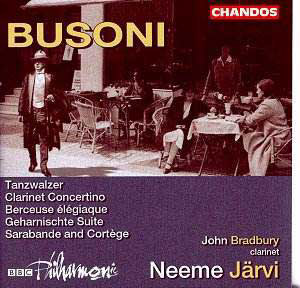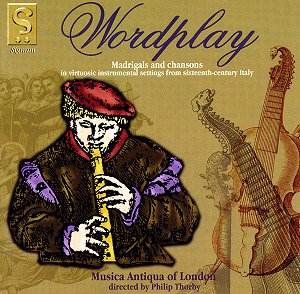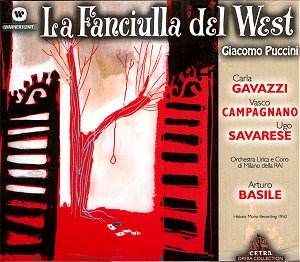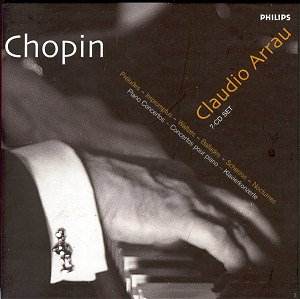 Composer: Ferruccio Busoni
Composer: Ferruccio Busoni
Works: Orchestral Suite No. 2 ‘Geharnischte Suite’, Op. 34a; Berceuse élégiaque, Op. 42; Concertino for Clarinet and Small Orchestra, Op. 48; Sarabande and Cortège, Op. 51 (Two Studies for Doktor Faust); Tanzwalzer, Op. 53
Performers: BBC Philharmonic; Neeme Järvi, conductor; John Bradbury, clarinet (in Concertino)
Recording: March 2001, Manchester, UK
Label: Chandos
Ferruccio Busoni, an enigmatic figure straddling the late Romantic and early modern eras, has long been overshadowed by contemporaries such as Richard Strauss and Gustav Mahler. His multifaceted oeuvre encompasses piano works, orchestral compositions, and operas, yet he remains a composer whose full impact is often relegated to the margins of music history. This recording of key orchestral works offers a compelling entry point into Busoni’s world, revealing a composer whose technical prowess and emotional depth merit greater recognition.
The Orchestral Suite No. 2, ‘Geharnischte Suite’, Op. 34a, serves as a powerful opening to this collection. Written in 1917, it reflects a dichotomy of martial vigor and introspective melancholy. The BBC Philharmonic, under the baton of Neeme Järvi, navigates the work’s complexities with a keen sense of balance. The War Dance and Assault movements display a vigorous energy, though one might crave a bit more abandon in their execution to match the bombast suggested by the score. Notably, the harmonic language remains rich and evocative, with a blend of orchestral colors that hints at Busoni’s fascination with the psychological narratives often found in his works.
The Concertino for Clarinet and Small Orchestra, Op. 48, offers a delightful contrast, showcasing the orchestra’s principal clarinetist, John Bradbury. His performance is marked by a lyrical expressiveness that captures the work’s delicate textures and playful motifs. The clarity of articulation and buoyancy in the melodic lines demonstrate Busoni’s adeptness at blending chamber music intimacy with orchestral breadth. The affinity with Strauss’s later chamber works is palpable, particularly in the way Busoni employs the clarinet to evoke the world of commedia dell’arte, intertwining nostalgia with a sense of whimsy.
Busoni’s Berceuse élégiaque is a poignant tribute to his mother, encapsulating profound sorrow through a haze of impressionistic harmonies. The orchestration is masterful; here, muted strings intertwine with woodwinds, creating an ethereal soundscape that is hauntingly beautiful. Järvi’s direction allows for lush nuances, embodying the work’s dreamlike qualities, which contrast sharply with the more robust textures found in the preceding works. The emotional weight carried by this piece underscores Busoni’s capacity to convey personal longing through orchestral language.
The Tanzwalzer, Op. 53, while ostensibly lighter in nature, carries an undercurrent of pathos that elevates it beyond mere entertainment. The rhythmic vitality here is expertly managed by Järvi, who imbues each dance with a sense of gravitas, ensuring the work resonates with both playfulness and depth. This duality is a hallmark of Busoni’s style, as he seamlessly merges lightness with profound emotional currents.
The recording quality is commendable, with Chandos capturing the nuances of orchestral color and texture with clarity and warmth. The engineering allows each instrument to be heard distinctly while maintaining an overall cohesive sound. Comparatively, while there are other recordings of Busoni’s works, notably from Naxos, the interpretative depth and warmth of the BBC Philharmonic’s performance under Järvi distinctly positions this recording as a frontrunner in advocating for Busoni’s symphonic legacy.
Busoni’s music, often relegated to the periphery of the standard repertoire, deserves renewed exploration and appreciation. This recording not only showcases his technical and emotional breadth but also presents a compelling case for his place within the broader narrative of early 20th-century music. Each work on this disc unfolds with a unique character, revealing a composer who, despite being perceived as second-tier, possesses an artistry that can stand shoulder to shoulder with the greats. The combination of Järvi’s insightful direction and the BBC Philharmonic’s nuanced performance renders this album a significant contribution to the ongoing reevaluation of Ferruccio Busoni’s artistic legacy.



